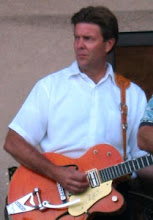
Is there really a war between Science and Religion? In many people’s mind the two are polar opposites. You must choose one or the other. I truly believe that true religion and true science are not at odds. Keep in mind this is the editorial page, not the news page and this is only my opinion…but pull up a chair and have a short read.
Ever hear the phrase “flat earther”? It is a derisive term, often hurled by those looking to elevate scientific thought over religious thought. It ‘s a reference to supposedly religious people who claimed the earth was flat even though scientists of the day had deemed it round, implying that scientific knowledge was hobbled for centuries during the Christian era. According to the myth, science only re-emerged during the renaissance, when science purportedly overruled religion.
The big problem is… it’s not true. Very few of the medieval scholars or clerics doubted the earth was round. Jeffrey Russell, a professor in the UC system wrote a book in 1991 on the subject named "Inventing the Flat Earth". He says that during the first 15 centuries of the Christian era, only five known clerics questioned the round globe. He stated flatly that “no educated person in the history of Western Civilization from the third century forward believed the earth was flat” Where did this myth come from then?
It is mainly from a fictional work by author Washington Irving, the creator of Rip Van Winkle. He penned a fictitious book about the life and voyages of Christopher Columbus. In this book, he fantasized a confrontation at the University in Salamanca in 1491, pitting Columbus against an array of professors, friars and dignitaries of the Church. In the fictional drama, Columbus pleads the case of the world being round against the scoffs and scorns of the Church and the cowed professors, who argue it to be flat. Historians, such as Samuel Morison describe Irving’s account as pure fantasy, calling it “misleading and mischievous nonsense”. There were objections raised at the real Salamanca hearings; mainly that Columbus had misjudged distances by a considerable margin, but none on the grounds that the Earth was flat.
Another battle in the Science vs. Religion arena was centered on a fellow named Nicholas Copernicus. Copernicus was a canon of a Catholic cathedral in Poland, and studied mathematics, physics and astronomy at the Catholic University of Bologna. It was here that his professor presented a challenge to the belief that the earth was the center of our solar system. Copernicus wrote his thesis that the planets revolved around the Sun, and the theory was supported by Pope Leo X at the time. Some of the leaders of the Christian reformation, namely Martin Luther and John Calvin doubted his thesis, but neither cleric made any attempt at repressing the theory.
The doubters were in the scientific community, namely Tycho Brahe, a Danish astronomer, and later Johannes Kepler who believed that the other planets did orbit the Sun, which in turn all orbited the Earth!
Before the twentieth century few scientists saw any conflict between science and religion. Pioneering geneticist Gregor Mendel was a monk and Louis Pasteur was a devout Catholic. The electrifying names of Andre-Marie Apere (amps), Alessandro Volta (volts), were very religious. Isaac Newton, Max Planck and Albert Einstein were also religious men.
In the modern world Francis S. Collins, the director of the Human Genome Project is a practicing Christian. He wrote a book "The Language of God: A Scientist Presents Evidence for Belief."
Today we see supposed skirmishes in the areas of Darwinian Macro Evolution, stem cell research and human cloning. Then there is the alternate universe where science and religion are transposed – manmade Global Warming. If you ever hear the phrase, “The Science is settled” you can be sure those words were uttered by a “true to the global warming faith” politician, not a scientist.
Science and Religion are two separate schools of thought. I don’t believe humans discern spiritual promptings through empirical means. We cannot mathematically derive, nor produce through lab analysis supreme beings. Although, I do remember using prayer a lot before Biochemistry finals at University, but that is a different matter.
Likewise we cannot lean on Religion to replace Science. The realities of carbon dating, DNA analysis and other scientific discoveries should not pose any threat to religious people. Almost all religions I know of are very aware that there is much yet to be revealed to mankind. Some of it will come through spiritual means, and some of it will come from our scientists.
Religious folks should not shy away from Science, but rather strive to understand the facts behind a particular scientific theory. Likewise, Scientists should not allow scientific theory to cause them to stray from their spiritual beliefs. As the decades progress, I believe Science and Religion will likely prove to be much more in synch than anyone supposes.

No comments:
Post a Comment